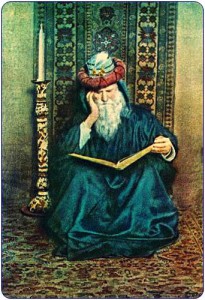Sufi Biography: Faridudin Attar
Faridi-ul-Din Attar (or Faridudin) was born in Nishapur, in the Iranian province of Khorasan and died in the same city. He has often being referred as Farid-ul-Din of Nishapur. The word ‘Attar’ (perfumist) derives from Arabic/Persian word ‘Iter’ meaning perfume. Attar therefore refers to profession of Farid-ul-Din which eventually became more of his pseudonym. Farid-ul-Din left his profession to travel for the ultimate question of discovering oneself. It is being reported that he was at his shop when he encountered a Sufi at his shop. The event influenced his life so much that he abandoned his perfume shop and went on a spiritual pilgrimage to Kufa, Mecca, Damascus, Turkistan, and India, meeting with Sufi sheikhs – and returned to Nishapur promoting Sufism. Ilahi nama and Manteq al-Tayr are his greatest works.
Conference of the Birds
These valleys are:
· The Valley of Quest
· The Valley of Love
· The Valley of Understanding
· The Valley of Independence and Detachment
· The Valley of Unity
· The Valley of Astonishment and Bewilderment
· The Valley of Deprivation and Death
The journeys undertaken by birds profoundly represent the spiritual pilgrimages of man, in quest of the God, as he goes through different phases.
All the birds, based on their natural flaws and shortcomings, present excuses not to travel. These excuses are explained further via Hakayaat, or Moral Stories.
Illahi Nama (Book of God)
In the Book of God (Ilahi-nama) ‘Attar framed his mystical teachings in various stories that a caliph tells his six sons, who are kings themselves and seek worldly pleasures and power.
Read the Abridged text from Illahi Nama in English here.

